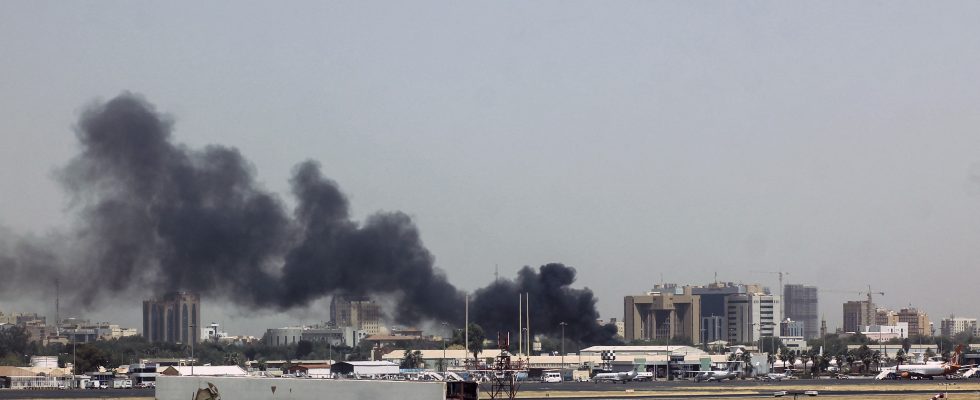Sudan is on fire again. This Saturday, April 15, heavy fighting broke out in the capital Khartoum, between the Rapid Support Forces (RSF) of General Mohamed Hamdane Daglo, known as “Hemedti”, and the army, controlled by General Abdel Fattah al-Burhane, de facto ruler of Sudan since his coup of October 25, 2021. The provisional toll is three civilians killed, including two in Khartoum during the fighting, according to a medical source.
The FSR claim to hold the international airport and the presidential palace and call on the entire population, including the soldiers, to turn against the army. Opposite, Abdel Fattah al-Burhane declared that his air force was carrying out “operations” against the “enemy”. In Khartoum, AFP journalists heard overflights over RSF bases while the army posted a photo of one on fire in the south of the city on its Facebook account. The two camps also clash near the headquarters of the state media, witnesses told AFP.
A “dangerous” deployment
“The fighting” began when the RSF attacked army bases “in Khartoum and elsewhere in Sudan”, army spokesman General Nabil Abdallah told AFP. The army, it, “performs its duty to protect the fatherland”, he added. On the FSR side, the opposite is said: they say they were “surprised in the morning by the arrival of a large contingent of the army who besieged their camp in Soba”, in the south of Khartoum, and “attacked them with all kinds of heavy and light weapons”.
Thursday, the army already denounced a “dangerous” deployment of paramilitaries in Khartoum and other cities in Sudan “without the approval or the slightest coordination with the command of the armed forces”. Because for days, while civilians and the international community had to accept a new postponement of the signing of a political agreement supposed to get the country out of the impasse because of the differences between the two generals, videos kept showing the arrival of a large number of armored vehicles and men in various cities, including Khartoum.
The concern of the international community
The differences between the two camps essentially relate to the future of the paramilitaries: the return to democratic transition depends on their integration into the regular troops. If the army does not refuse it, it still wants to impose its conditions of admission and limit in time their incorporation. General Daglo, he claims a broad inclusion, and especially his place within the staff.
This dispute still blocks the return to the transition demanded by the international community to resume aid to Sudan, one of the poorest countries in the world. The UN envoy to Sudan, Volker Perthes, on Saturday called on soldiers and paramilitaries to “immediately” cease their fighting in Khartoum and elsewhere in the country.
“Mr. Perthes has contacted both parties to request an immediate cessation of hostilities for the safety of the Sudanese people and to spare the country further violence,” said a statement from the UN mission in Sudan. “We urge all actors to immediately cease all violence,” tweeted US Secretary of State Antony Blinken, saying he was “deeply concerned”. Russia also calls for “urgent measures for a ceasefire”.
